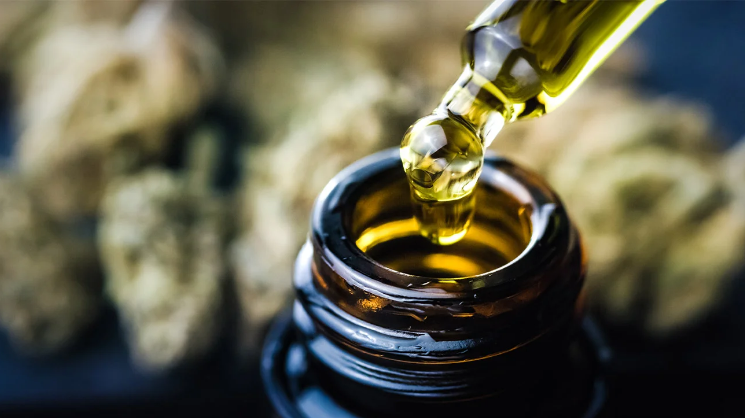The Science Behind CBG Oil: Research and Findings

Cannabigerol (CBG) oil is garnering increasing attention in the realm of cannabinoid research due to its potential therapeutic benefits and diverse physiological effects. As a lesser-known cannabinoid derived from the cannabis plant, CBG offers unique properties that distinguish it from more widely recognized cannabinoids like THC (tetrahydrocannabinol) and CBD (cannabidiol). This article delves into the scientific research and findings behind CBG Oil, exploring its mechanisms of action, health benefits, potential applications, current studies, and future directions in cannabinoid therapy.
Understanding CBG Oil
What is CBG?
Cannabigerol (CBG) is a non-psychoactive cannabinoid found in the cannabis plant. It serves as a precursor to other cannabinoids during the plant’s growth cycle, including THC and CBD. CBG is typically present in lower concentrations compared to THC and CBD, making it less abundant and more challenging to extract. However, recent advancements in cultivation and extraction techniques have enabled increased production of CBG-rich cannabis strains and CBG oil products.
Extraction and Production
CBG oil is primarily extracted from young cannabis plants or specially bred hemp strains with higher CBG content. Common extraction methods include CO2 extraction and ethanol extraction, which yield a concentrated CBG oil. The purity and potency of CBG oil can vary depending on the extraction process and quality of the plant material used. Due to its limited availability and higher extraction costs, CBG oil products may be more expensive than CBD oil.
Mechanisms of Action
Interaction with the Endocannabinoid System (ECS)
CBG interacts with the body’s endocannabinoid system (ECS), a complex network of cannabinoid receptors (CB1 and CB2), endocannabinoids, and enzymes. Unlike THC, which primarily binds to CB1 receptors in the brain to produce psychoactive effects, CBG interacts with both CB1 and CB2 receptors in a more nuanced manner.
- CB1 Receptors: Found predominantly in the central nervous system, CB1 receptors regulate functions such as pain perception, mood, appetite, and memory.
- CB2 Receptors: Located primarily in the immune system and peripheral tissues, CB2 receptors modulate inflammation and immune response.
CBG’s interaction with these receptors influences various physiological processes, contributing to its potential therapeutic effects.
Health Benefits of CBG Oil
Anti-Inflammatory Properties
CBG oil has demonstrated significant anti-inflammatory effects in preclinical studies. By interacting with CB2 receptors in the immune system, CBG helps reduce inflammation throughout the body. This makes CBG oil potentially beneficial for managing inflammatory conditions such as arthritis, inflammatory bowel disease (IBD), and neuroinflammatory disorders.
Neuroprotective Effects
Research suggests that CBG possesses neuroprotective properties, which can benefit brain health and function. CBG may protect neurons from oxidative stress and inflammation, potentially slowing the progression of neurodegenerative diseases like Alzheimer’s and Parkinson’s disease. These neuroprotective effects highlight CBG’s potential as a therapeutic agent for managing cognitive decline and neurological disorders.
Antibacterial and Antimicrobial Activity
CBG exhibits potent antibacterial and antimicrobial activity against antibiotic-resistant bacteria, including strains such as MRSA (Methicillin-resistant Staphylococcus aureus). This makes CBG oil a promising candidate for treating bacterial infections that are challenging to manage with conventional antibiotics. CBG’s antimicrobial properties contribute to its potential role in supporting immune function and combating infectious diseases.
Potential Cancer-Fighting Properties
Preliminary studies suggest that CBG may inhibit the growth of cancer cells and exert anticancer effects. CBG’s mechanisms of action in cancer treatment include modulating key cellular pathways involved in cell proliferation, apoptosis (programmed cell death), and tumor progression. Research is ongoing to explore CBG’s potential as an adjunct therapy for various types of cancer, including colorectal cancer and breast cancer.
Appetite Stimulation
CBG has been found to stimulate appetite, contrasting with THC, which is known for its appetite-suppressing effects. This appetite-stimulating property of CBG can be beneficial for individuals experiencing appetite loss due to medical treatments or conditions such as cancer or HIV/AIDS. CBG oil may help improve nutritional intake and support overall health and well-being.
Glaucoma Management
Research indicates that CBG can help reduce intraocular pressure, making it a potential treatment option for individuals with glaucoma. By lowering pressure within the eye, CBG oil may help protect the optic nerve and preserve vision. The potential of CBG in managing glaucoma highlights its therapeutic versatility and application in ophthalmic health.
Applications of CBG Oil
Methods of Use
CBG oil can be incorporated into daily wellness routines through various administration methods:
- Sublingual Administration: Place a few drops of CBG oil under the tongue and hold for 30-60 seconds before swallowing. This allows for rapid absorption into the bloodstream, providing quick onset of effects.
- Topical Application: Apply CBG-infused creams or balms directly to the skin to target localized pain, inflammation, or skin conditions like acne and eczema.
- Ingestion: Incorporate CBG oil into food or beverages, or take CBG capsules for systemic effects and sustained release over time.
- Inhalation: Vaping CBG oil allows for rapid absorption through the lungs, offering immediate relief from symptoms. However, vaping may pose risks to respiratory health and requires caution.
Dosage Considerations
Determining the appropriate dosage of CBG oil depends on factors such as individual health status, body weight, tolerance to cannabinoids, and specific health goals. It’s advisable to start with a low dose and gradually increase it until the desired therapeutic effects are achieved. Consulting with a healthcare professional can provide personalized guidance on dosage adjustments and optimal use of CBG oil.
Safety Considerations
CBG oil is generally well-tolerated, with minimal side effects reported in clinical studies. However, some individuals may experience mild adverse effects such as dry mouth, drowsiness, or gastrointestinal discomfort. It’s essential to use CBG oil responsibly and consult with a healthcare provider before starting any new supplement regimen, especially if you have pre-existing health conditions or are taking medications.
Emerging Research and Future Directions
Current Studies
Ongoing research continues to explore the therapeutic potential of CBG oil and expand our understanding of its mechanisms of action. Current studies are focusing on:
- Pain Management: Investigating CBG’s efficacy in alleviating chronic pain conditions, neuropathic pain, and inflammatory pain disorders.
- Neurological Disorders: Exploring CBG’s neuroprotective effects and its potential application in treating neurodegenerative diseases such as Alzheimer’s and Parkinson’s disease.
- Inflammatory Conditions: Studying CBG’s anti-inflammatory properties and its role in managing inflammatory diseases like arthritis and IBD.
- Cancer Research: Evaluating CBG’s anticancer effects and its potential as a complementary therapy in cancer treatment protocols.
Regulatory Landscape
The regulatory landscape for CBG and other cannabinoids is evolving, with variations in legality and accessibility across different regions and countries. While hemp-derived CBG products are legal in many areas, regulations regarding cultivation, extraction, and distribution may impact availability and consumer access. It’s important for individuals to stay informed about local laws and seek reputable sources when purchasing CBG Oil products.
Conclusion
CBG oil represents a promising frontier in cannabinoid therapy, offering a wide range of potential health benefits from anti-inflammatory and neuroprotective effects to antimicrobial properties and appetite stimulation. The scientific research and findings discussed highlight CBG’s therapeutic versatility and its role in promoting holistic health and wellness. As research continues to unravel the complexities of CBG’s mechanisms of action and efficacy in various medical conditions, CBG oil holds promise as a valuable addition to integrative healthcare practices. Always consult with a healthcare professional for personalized advice on incorporating CBG oil into your health regimen and maximizing its potential benefits effectively and safely. With ongoing advancements and growing interest, CBG oil stands poised to contribute significantly to the future of natural and alternative medicine.









